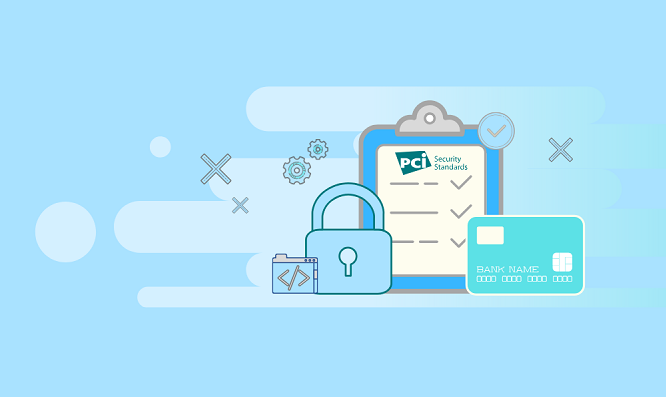The Growth of Fintech Start-ups
In a study, Capgemini revealed, “half of the banking customersglobally are now using services of at least one fintech firm”. India, China,and the US are the largest fintech markets. Deep penetration of the 3G/4Gnetwork in the Indian and Chinese markets took the conventional banking systemby surprise. Independent players with solid technology and venture capital addressed theprolonged issues of low banking penetration and dormancy in the Indian andChinese markets.
The contemporary Fintech market boasts of 39 VC backed unicorns with a combined valuation of $150 billion. Industry leaders like Visa have invested close to $1 billion in fintech start-ups from India. If the fintech industry was a person, it would be richer than Jeff Bezos.
PCI DSS Council, which includes of Visa, MasterCard, American Express, JCB and Discover are closely monitoring the fintecah industry.In 2019, PCI Council met fintech entrepreneurs from Asia and addressed the growing concerns. The council held security forums in varied countries and invited fintech leaders to share their plan of safeguarding cardholders’ data.
PCI DSS Council is urging fintech organizations to get compliant because by 2022 mobile transactions are projected to grow by 121% eventually composing 88% of all banking transactions.
The Major Security Concerns for Fintech Organizations
After carefully catering to varied concerns raised by governments, organizations like Google and WhatsApp have launched their app-based payment systems but they are yet to get par with the required security standards.
Here are some statistics suggesting how fintech organizations have failed to furnish the most basic compliances:
- 56% of mobile app backend have misconfigurations leading to data breaches
- 62% of fintech company websites failed PCI DSS compliance test
- 64% of fintech’s company websites failed GDPR Compliance (Source)
Alipay, the Chinese fintech giant accounts for 61% of the app-based transaction in the country. In the recent past, Alipay’s security was compromised and 20GB of data were illicitly accessed. In a statement, Alipay clarified that no cardholders’ data was exposed or accessed because it was protected by a sophisticated encryption method.
Varied agencies and government are coaxing fintech organizations to furnish basic compliances like GDPR, PCI DSS, and KYC to contain attacks, data breaches and other security concerns like:
- Cross-site Scripting
- Exposure of Sensitive Data
- Security Misconfiguration
- DDoS Attacks
- Vulnerability Management
- Ransomware Attacks
Multiple organizations rely heavily on ransomware and data breach insurance instead of acquiring a preventive approach. By paying for ransomware insurances, where insurance enterprises pay off hackers and save businesses, organizations are encouraging hackers.
What Is PCI DSS Compliance And How It Helps Fintech?
PCI DSS Compliance consists of 12 commandments every organization that collects, stores or processes cardholders’ data needs to furnish. Earlier, PCI DSS compliance was applicable only for enterprises that operated on credit card details. Owing to the recent development, enterprises that store or process cardholders’ data no matter whether credit, debit or prepaid card needs to get PCI DSS compliant.
PCI DSS Compliance divides businesses into 3 levels based on the volume of the transactions they process in a calendar year.
Level 1
- Applicable to organizations that process over 6 million transactions annually
- These enterprises need to conduct annual audits and document them with the help of PCI QSA
- Such organizations must conduct quarterly network scans and document the results
Level 2
- Any enterprise that processes transactions between 1 to 6 million annually is applicable for PCI DSS Level 2
- Such organizations are required to conduct annual scans and generate a report with the help of PCI QSA
- They must conduct quarterly network scans and document the results
Level 3
- Applicable on merchants who processes transactions between 20,000 to 1 million in a calendar year
- Such enterprises are required to furnish a self-assessment questionnaire every year
- Conduct and document network scans every quarter
What Is The Benefit of Furnishing 12 PCI DSS Requirements?
Furnishing the 12 PCI DSS requirements help organizations:
- Get rid of all vulnerabilities
- Conceal loopholes and secure cyber-assets
- Help organizations discover attempts of internal sabotages and nullify them
- Put up a system that restricts unauthorized access both internal and external
- Ensure the latest and strongest firewall is added and is upgraded from time to time
- Verify that only latest and eligible routers are used to transmit data
- Verify that SSL encryption is available on all pages that transfer cardholders’ data
How Failing PCI DSS Compliance Impact Fintech Organizations?
62% of fintech organizations have failed PCI DSS compliance and paid hefty fines. Failing compliance audits not only invites heavy fines but also impacts the market share. Businesses that receives, stores or transfers cardholders’ data must abide by the norms of PCI DSS Council because failing it invites:
- A heavy fine ranging $5000-$100,000
- Tarnished brand reputation
- Loss of customer confidence
A study recently found, only 29% of organizations continue with PCI DSS Compliance after the first year. Owing to the ignorance by enterprises, PCI DSS Council, which includes Visa, American Express, and MasterCard has decided to pursue audits aggressively. Businesses that are in grave violation of compliance will have to furnish heavy fines.
A survey suggests that 69% of customers look for PCI DSS certificates and SSL Padlock before sharing their card details with a business, which signifies the importance of getting PCI Certified.
How To Get PCI DSS Compliant?
No matter how big of an organization you are, you simply cannot furnish PCI DSS requirements on your own. It is the intricacies of PCI DSS Certification that makes it tough for you and impossible for hackers to penetrate. By investing in compliance, enterprises buy security and peace of mind for themselves as well as customers.
Here’s How You Can Get Compliant
Finding the Right PCI QSA: A Qualified Security Assessor is your go-to individual for all PCI DSS needs. He or she is certified from PCI Council and eligible to carry out your certification process. Finding the right PCI QSA has its own set of benefits because these individuals have a comprehensive understanding of IT and Security.
A PCI QSA Carries Out The Following Processes
- Assesses the existing infrastructure
- Improvises on security features based on PCI requirements
- Runs vulnerability scans
- Documents changes
- Gets the firewall up and running
- Ensures security from unauthorized personnel
Apply for Certification: Once a PCI QSA assesses and improvises the security based on the requirements of PCI, you can file for audit and certification. Generally, PCI QSAs are affiliated to enterprises that can certify businesses, which makes it easier for organizations to PCI Compliant.
What Are The Benefits Of Getting PCI DSS Compliant?
Well! In 2020, the average cost of a data breach is predicted to hit $3.9 million. Not all businesses can afford to pay such a huge amount. Also, 90% of businesses that suffered a data breach were shut within six months. Only businesses that had trusted backup and no direct connection with the end-user were able to survive.
Investing in PCI DSS pays dividends from the very first day in the form of increased customer confidence. With customers trusting your website, referral traffic and transactions are bound to increase.
One of the most taken for the granted benefit of getting PCI compliant is that it simplifies third-party integration. Today businesses are looking forward to getting in collaboration with only those enterprises that are PCI Compliant. Getting certified simplifies the integration process by ensuring other parties that their data is safe from unauthorized access.
Final Thoughts
For a long time now, organizations have suffered and seethed to the hands of hackers. With the requisite compliances and certifications, businesses can now put up a defense that protects them from unwanted fines and ransoms. PCI DSS, GDPR, and ISO Certifications are some regulations that are helping organizations create a safe IT environment for both customers as well as business administrators.








